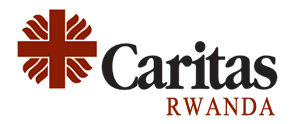
GRADUATION PROJECT
This project entitled “Graduation Project: Pathways to Economic Inclusion and self-reliance of the refugees and their host communities in RWANDA” was implemented as a pilot from 2020 up to 2021. It became scale up from 2022 and it is intended to take the end in December 2024.
Graduation project is funded by the United Nations High Commissioner for Refugees and implemented by Caritas Rwanda in partnership with Rwanda Ministry in charge of Emergency Management.
In pilot phase of the Graduation Project, 1345 beneficiaries were reached, while 1500 beneficiaries will be served in the scale up phase. According to MINEMA and UNHCR joint strategy of livelihood promotion and economic inclusion, 70% of the beneficiaries must be refugees and 30% Rwandans.
For the last 25 years, refugees on Rwanda territory have been relying on humanitarian assistance as single way of living. UNHCR and the Government of Rwanda are starting a mindset change to allow refugees greater freedom and capacity to take care of themselves and become less dependent on humanitarian assistance. This project seeks to increase the livelihood opportunity of refugees and host community members in refugee camps of Nyabiheke, Kiziba and Mahama as well as Kigali Urban area through the delivery of integrated, multi-sectorial services including finance, agriculture and livestock know-how, market linkages and advocacy.
The project goal is to boost the beneficiaries’ dignity and free them from dependency and humanitarian assistance. The outcome being that Beneficiaries in Rwanda enjoy the right to access for livelihoods & economic opportunities.
To achieve the expected results Caritas Rwanda:
- Provides training on business plan development, business management, access to markets and financial services;
- Builds links between the host community and refugees or other beneficiaries, strengthening the resilience capacity of both;
- Ensure regular communication and engagement with host communities in planning, implementing and monitoring of the assistance being provided;
- Uses graduation approach as a key strategy combining humanitarian and development assistance to help extremely poor refugees and host community members to become self-reliant;
- Supports youth in vocational trainings and provide them with start-up kit after they graduate from TVET schools;
- Facilitates the implementation of agricultural and animal husbandry related activities together with community members focusing on cash crops and animals with shorter reproductive period among others.
As for 2022, the project implementation progress and draw a relationship between the annual targets and the actual progress towards their desired achievements. From the beginning of the year, the project was presented to refugees, host communities and stakeholders at the sites of Mahama and Kiziba refugee camps. Local authorities are also involved during the project introduction and the whole project implementation process.
Caritas Rwanda continues to ensure a meaningful engagement with beneficiaries and ensures that their need is well understood, and their capacities and priorities are valued and leveraged in the process of graduating them from extreme poverty.

